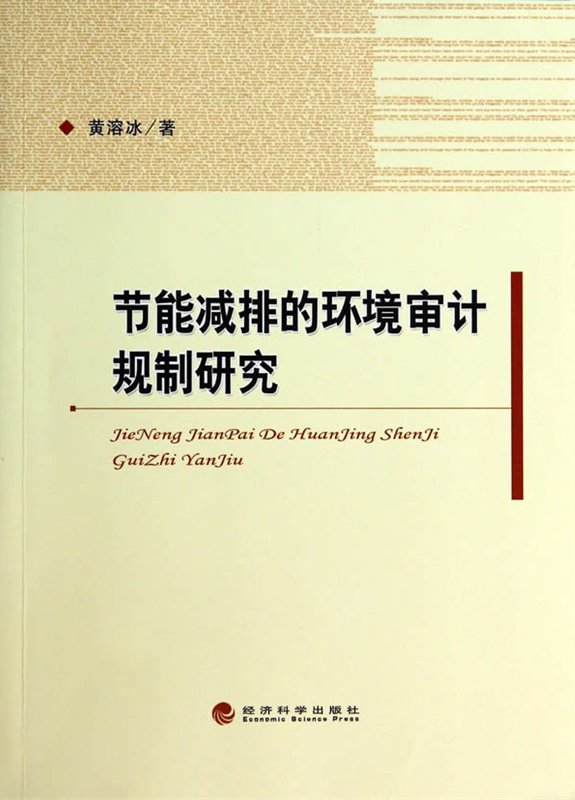Environmental audit to include performance factors

Study on the Environmental Audit Regulation of Energy Conservation and Emission Reduction
Author: Huang Rongbing
Publisher: Economic Sciences Press, 2014
China invested approximately 1.35 percent of its gross domestic product (GDP) in environmental protection in the period from 2006 to 2010. Thanks to the policy measures regarding energy conservation and emission reduction, environmental protection investment reached 3.1 trillion yuan between 2011 and 2015, a 121 percent increase compared to the previous five years.
As the rule states, wherever funds go, audits follow. Therefore, the nation’s environmental clean-up funding is closely tracked. Study on the Environmental Audit Regulation of Energy Conservation and Emission Reduction by Huang Rongbing goes beyond the traditional auditing focused on accounting and auditing itself. Rather, it boldly introduces and utilizes a range of ideas and methods in various disciplines, such as economics, management, engineering and sociology, to generate some remarkable research achievements.
The book chooses a unique perspective that draws upon a complex adaptive system to explain the regulatory mechanism of environmental auditing. Aimed at establishing a theoretical framework, exploring a set of empirical data, developing a series of research methods and improving institutional arrangements, it presents an overall layout for regulatory mechanism, tool design, effect analysis and system construction in the environmental audit of energy conservation and emission reduction.
In terms of research method, the book applies the mainstream international methods for analysis and evaluation, including analytic hierarchical process, data envelopment analysis, questionnaire survey and earned-value analysis, elevating the traditional environmental audit to a high-end performance audit.
The author emphasizes communicating with related parties as well as conducting case studies through interviews, seminars and questionnaires. There are six representative case studies introduced in the book that provide intellectual support for innovating governance in energy conservation and emission reduction.
Setting environmental protection funds as the primary focus while starting with the chain of responsibility of energy conservation and emission reduction, the author concludes that there is no fixed pattern of government intervention in the nation’s environmental clean-up efforts nor are there independent regulatory tools.
Energy conservation and emission reduction is a complex multi-sectoral, cross-regional, multi-centered system, so the adaptability and learning initiatives of each individual unit to carry out energy conservation and emission reduction are vital. Through environmental policy audits, positive external incentives linking environmental governance performance and an individual unit’s survival should take shape.
Yin Ping is from the Zhongnan University of Economics and Law.
